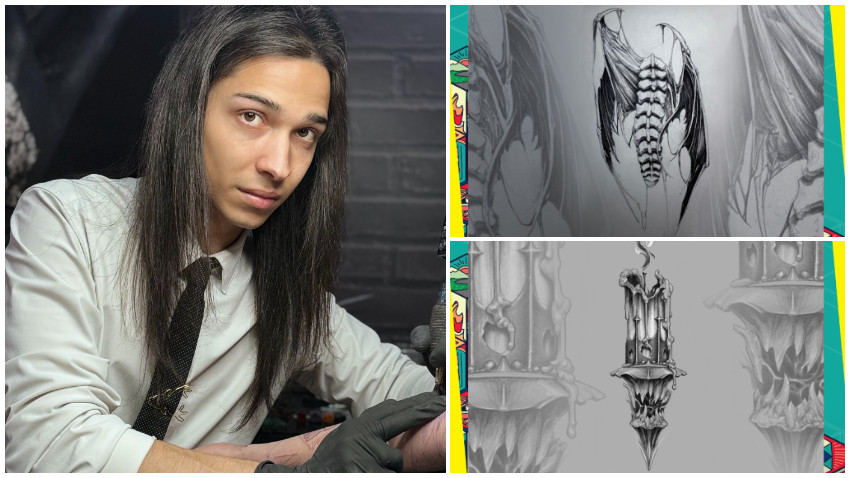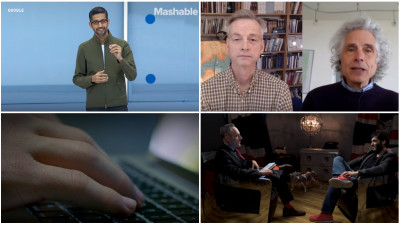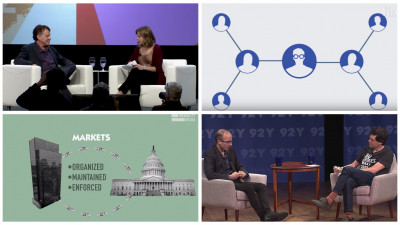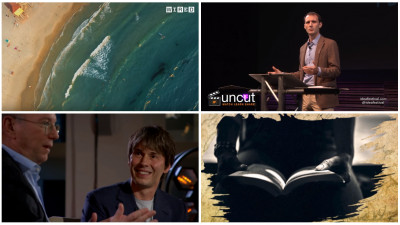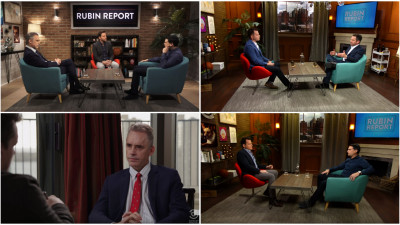Salutăm Ziua Internațională a Berii de mâine cu câteva lucruri utile. Cum să te dezbari de vicii, de exemplu. Să ții un jurnal în era oversharingului. Sau cu o discuție pe care nu vrea să o aibă nimeni, cum ar fi aceea despre infidelitate. Și sfaturi de la un agent CIA despre cum să detectezi minciuna.
Avem și o listă cu date importante, ca să ținem pasul cu Zilele și sărbătorilor și avem, bineînțeles, bere. Veche de 1100 de ani. De la bere am ajuns la brânză și de acolo la șofran. Merge bine cu sushi și pâine cu lavă. Ăsta da un weekend list cu de toate.
Important National and International days and dates (UNO)
These are the international days currently observed by the United Nations. New international days are established regularly. The resolution establishing each international day is listed in parenthesis.
David Sedaris on Keeping a Diary in the Age of Over-Sharing
David Sedaris offers advice to young writers. His biggest tip? Keep a diary. Here's why.
Rethinking infidelity ... a talk for anyone who has ever loved | Esther Perel
Infidelity is the ultimate betrayal. But does it have to be? Relationship therapist Esther Perel examines why people cheat, and unpacks why affairs are so traumatic: because they threaten our emotional security. In infidelity, she sees something unexpected — an expression of longing and loss. A must-watch for anyone who has ever cheated or been cheated on, or who simply wants a new framework for understanding relationships.
Is the Internet Making Us Smarter or Stupider?
The answer lies somewhere in between, says Nisbet.
A simple way to break a bad habit | Judson Brewer
Can we break bad habits by being more curious about them? Psychiatrist Judson Brewer studies the relationship between mindfulness and addiction — from smoking to overeating to all those other things we do even though we know they're bad for us. Learn more about the mechanism of habit development and discover a simple but profound tactic that might help you beat your next urge to smoke, snack or check a text while driving.
Former CIA Officer Will Teach You How to Spot a Lie l Digiday
In this participatory session, you will learn how to tell when someone is lying. Really. As a former CIA Officer with more than 20 years of experience in interviewing, interrogation and polygraph examination, Susan has seen her share of truth avoiders. She has, in fact, developed behavioral screening programs that are used by the federal government. Don’t miss out on learning her methodologies in spotting deception.
This 1,100-Year-Old Beer's For You: Recreating Ancient Ales
For University of Colorado classics professor Travis Rupp, the best way to bring ancient civilizations back to life is in a pint glass. Rupp works on a special projects team at Avery Brewing Company to brew beers the way that ancient Egyptians, Peruvians and Vikings did. While these beers are certainly different from their modern-day descendants, at the end of the day, a cold one the ancestral way is always a good thing. Cheers.
Why Does American Beer Taste Like Water?
Americans drink 51 Billion Pints of beer every single year. Despite the abundance of craft beers available, the most popular variety is the traditional light American Lager. But why do these mass produced beers taste so watery? And how did they get to be so popular in the first place?
Visit the Bank that Transacts in Cheese
Whether they're students or businesses, lots of people have to take out loans from the bank. For cheese farmers, there's a bank in Italy that will literally accept *cheese* as collateral for loans. This is the story of three men and millions of dollars worth of that proverbial cheddar.
Cheesemaking - a visit at a Swiss dairyman
The day at "Alp Calfeisen" starts with heating up the huge cheese vat. Cheese is made here still hand-made in a traditional way with milk from healthy cows on high pastures.
Inside the Cheese-Aging Caves 30 Feet Under Brooklyn | I Got a Guy | Bon Appétit
Benton Brown and Susan Boyle run Crown Finish Caves, a cheese aging facility 30 feet underground in Brooklyn, NY.
How Salt Is Made For NYC’s Best Fine Dining Restaurants — How to Make It
On this episode of How To Make It, chef Katie Pickens is turning ocean water into fancy salt with Steve, of Amagansett Sea Salt.
Why Is Caviar So Expensive?
Caviar is one of the most expensive foods in the world. Selling for up to $35,000 per kilo, it's revered and relished by aristocrats across the globe. But it's an acquired taste. Turns out, caviar wasn't always so valuable. In the 19th century, sturgeon species in the US were so common that there are accounts of caviar being offered in saloons for free, like bar nuts. In Europe, fishermen were feeding the eggs to their pigs, or leaving it on the beach to spoil. What changed?
Before Sushi, There Was Funazushi
The type of sushi you’re probably most familiar with is haya-nare, a quick form of sushi made and consumed within a day using vinegared rice and raw fish. But there’s a second type of sushi that takes a little longer to prepare—try three years longer. Served with rice and fermented fish, funazushi is a traditional Japanese dish dating back over 400 years. And while traditional sushi can be made using a variety of fish, funazushi is made only using fish unique to Japan’s Lake Biwa. No one understands the process better than Mariko Kitamura. She’s the 18th generation to run her family’s shop in Takashima City. Together with her husband, she’s keeping the legacy and traditional methods of funazushi alive.
The Wasabi You Eat Probably Isn’t Wasabi
Most of the time, the wasabi you get in a restaurant or buy in a store is fake. It’s actually horseradish that’s colored green. Why? Well, wasabi is a notoriously difficult plant to grow. In fact, it’s considered the most difficult plant in the world to farm commercially. Yet for the past century, the Daio Wasabi Farm in Hokata, Japan, has been growing it successfully with natural spring water from nearby mountains.
Baking Bread with Lava in Iceland
Siggi Rafn Hilmarsson is an Icelandic baker with an interesting technique. He buries his dough 16 inches underground where it actually bakes from the natural heat generated by Iceland's volcanic hot springs. Why doesn't Siggi just use a conventional oven? Come on. His method is WAY cooler.
Sea Urchins Are California Gold: Hunter Gatherer
In our new series Hunter and Gatherer, MUNCHIES joins Stephanie Mutz, a Santa Barbara sea urchin diver as she dives deep for California gold. We follow her as she delivers her prized bounty straight from the sea to the city’s best chefs and her curious customers at the Dory Fleet Market in Newport Beach. It’s time to crack open a few—that is, if you’ve acquired a taste for it.
Why Is Saffron So Expensive?
Harvesting saffron requires a lot of physical labor to get the flowers from the field to final packaging. The harvesting process plus its distinct flavor, smell, and color make it the most expensive spice in the world. It's used in kitchens across the world, as a fabric and skin dye, and may soon be used more widely for medicinal purposes.
Sushi Chef vs. French Chef: Who Burns More Calories? | Bon Appetit
Who is more active: a Sushi Chef or a French Chef? We put a fitness tracker on two chefs during dinner service to find out who makes more motions, has a higher heart rate, and burns more calories.


![[Weekend Watch List] Infidelitate, bere, agenți CIA și pâine cu lavă](https://media.iqads.ro/2023/03/infidel-cover-850.jpg?v=202303151033)






